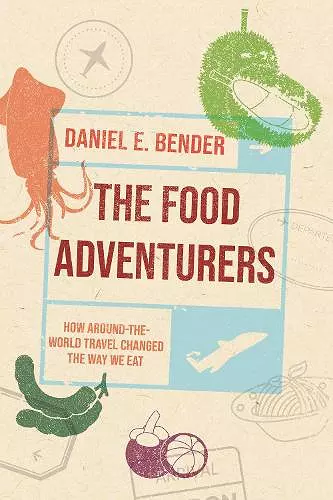The Food Adventurers
How Around-the-World Travel Changed the Way We Eat
Format:Hardback
Publisher:Reaktion Books
Published:1st Jul '23
Should be back in stock very soon

From mangosteen fruit discovered in a colonial Indonesian marketplace to caviar served on the high seas in a cruise-liner’s luxurious dining saloon, The Food Adventurers narrates the history of eating on the most coveted of tourist journeys: the around-the-world adventure. The book looks at what tourists ate on these adventures, as well as what they avoided, and what kinds of meals they described in diaries, photographs and postcards. Daniel E. Bender shows how circumglobal travel shaped popular fascination with world cuisines, and leads readers on a culinary tour from Tahitian roast pig in the 1840s, to the dining saloon of the luxury Cunard steamer Franconia in the 1920s, to InterContinental and Hilton hotel restaurants in the 1960s and ’70s.
'Finally, someone has written a book about the hypocrisy (or maybe just “ambiguity”) of gastro-tourism and how it has been marketed. But who knew this story could be presented as funny and ironic? From the colonial Dutch East Indies rijsttafel to Anthony Bourdain, Bender traces the nearly two-hundred-year history of the tug-of-war between tourists’ professed desire for authenticity and their need for comfort and familiarity.' – Paul Freedman, Chester D. Tripp Professor of History, Yale University, and author of American Cuisine
ISBN: 9781789147575
Dimensions: unknown
Weight: unknown
352 pages